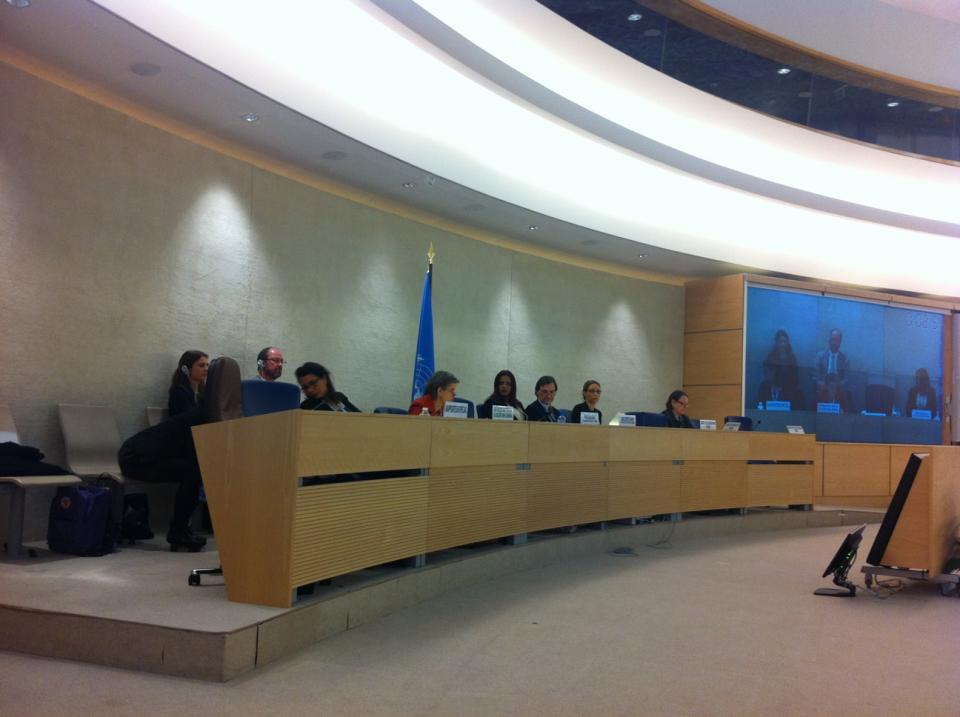- عربي
- 中文
- English
- Français
- Русский
- Español
Human Rights Council - SRSG emphasizes the human rights imperative to end violence against children and considers violence as a major public health concern affecting children of all ages

Geneva, 8 March 2013 - In the annual full day meeting on the rights of the child, the Human Rights Council focused on the right of the child to the enjoyment of the highest attainable standard of health. The meeting included discussions on the challenges in achieving the full realization of the universal right to health and focused on strengthening the implementation of the right of the child to health and on accountability mechanisms that need to be in place to ensure that Member States comply with their human rights obligations.
The Special Representative on Violence against Children participated in a panel with experts from the Government of Uruguay, UN agencies, the Inter-American Court on Human Rights, the European Commission, the Committee on the Rights of the Child, the Special Rapporteur on sale of children, child prostitution and child pornography, academia, civil society and child representatives from Bolivia and Haiti.
In her statement, SRSG Marta Santos Pais emphasized the human rights imperative to end violence against children and stated that violence is a major public health concern that affects children of all ages of development.
"Violence is a leading cause of death. In 90% of the cases, incidents take place in non-war affected situations, including as a result of interpersonal, self-inflicted or community violence. Violence provokes anxiety, emotional distress, depression, and low self esteem; it is associated with poor health, sleeping and eating disorders, obesity, toxic and post-traumatic stress and it may lead to aggressive and risk behaviour, propensity to alcohol and drug abuse, conduct disorder and delinquency, as well as self-harm, disability and death," said the SRSG.
Ms Santos Pais recognized the crucial role of health professionals as they are often the first point of contact for those at risk and frequently perceived as less stigmatizing than law enforcement agencies.
Health personnel help to detect the harm and damage provoked by incidents of violence – in the form of physical aggression, psychological ill-treatment, neglect, injury or sexual abuse. They support and provide treatment, counselling, trauma therapy or emergency health care. They provide recovery and long lasting reintegration services and are critical to enable investigation of incidents and prosecution of those found responsible.
"Action is of essence to enhance our shared accountability for the realization of children’s right to health. I feel pressed by a strong sense of urgency. It is critical to put in place in each country a comprehensive, well-coordinated and well-resourced agenda, with a special emphasis on legislation that recognizes children’s right to health including universal, affordable and inclusive health services and an explicit legal ban on all forms of violence against children. All laws that provide any justifications or allow consent to harmful practices should be removed in the legislation," highlighted the SRSG.
Ms Santos Pais also explained the important role of partnering with children to expose health risks and concerns. Their insights remain instrumental to inform policy and legal solutions, and to evaluate how well we are doing in promoting children’s highest attainable standard of health.
"Joining hands together, these goals are clearly within reach!" concluded Ms. Santos Pais.

